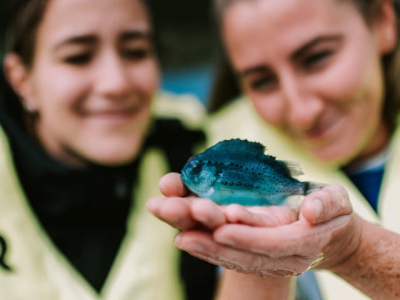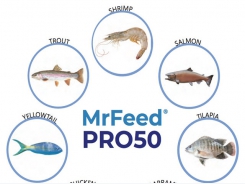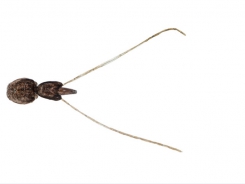BioMars latest feed diet cuts out cleaner fish cataracts

Denmark's BioMar Group reports to have found a solution to the cataract issues affecting certain varieties of cleaner fish with its latest feed recipe, named Symbio.
According to a study conducted by the firm, cataracts affect at least 60% of all lumpfish, a cleaner species commonly used in salmon pens to graze for parasitic sea lice. By damaging the fish's vision, cataracts prevent lumpfish from properly detecting lice or consuming aquafeed efficiently.
However, BioMar claims that its latest Symbio recipe will eliminate feed-related cataracts, improving the lumpfish's health, welfare and performance.
Previous studies of cataracts in lumpfish had identified nutritional imbalances with high levels of specific amino acids in certain tissues. In a recently-completed controlled feed study, for instance, BioMar found high incidences of severe cataracts in those lumpfish that were fed a control feed with a protein and fat content typical for marine cold-water species.
By reducing the content of protein and fat in a series of alternative feeds, BioMar's study resulted in no cataracts occurring among the test lumpfish.
"A balanced reduction in nutrient density was decisive in avoiding the eye disease," said Torunn Forberg, lead scientist on the study. "Moreover, during the study, the reduction in nutrients did not have any negative effect on normal growth rates, feed utilization and survival rates for transfer sized fish at 50g.”
BioMar has suggested the effectiveness of its new Lumpfish Grower range of feeds can be measured in boosts to fish health, welfare, and delousing capabilities.
Related news
Tools

Phối trộn thức ăn chăn nuôi

Pha dung dịch thủy canh

Định mức cho tôm ăn

Phối trộn phân bón NPK

Xác định tỷ lệ tôm sống

Chuyển đổi đơn vị phân bón

Xác định công suất sục khí

Chuyển đổi đơn vị tôm

Tính diện tích nhà kính

Tính thể tích ao



 Vietnam’s shrimp sales grow steadily in Taiwan
Vietnam’s shrimp sales grow steadily in Taiwan  Sea lice set to survive increased ocean acidification
Sea lice set to survive increased ocean acidification